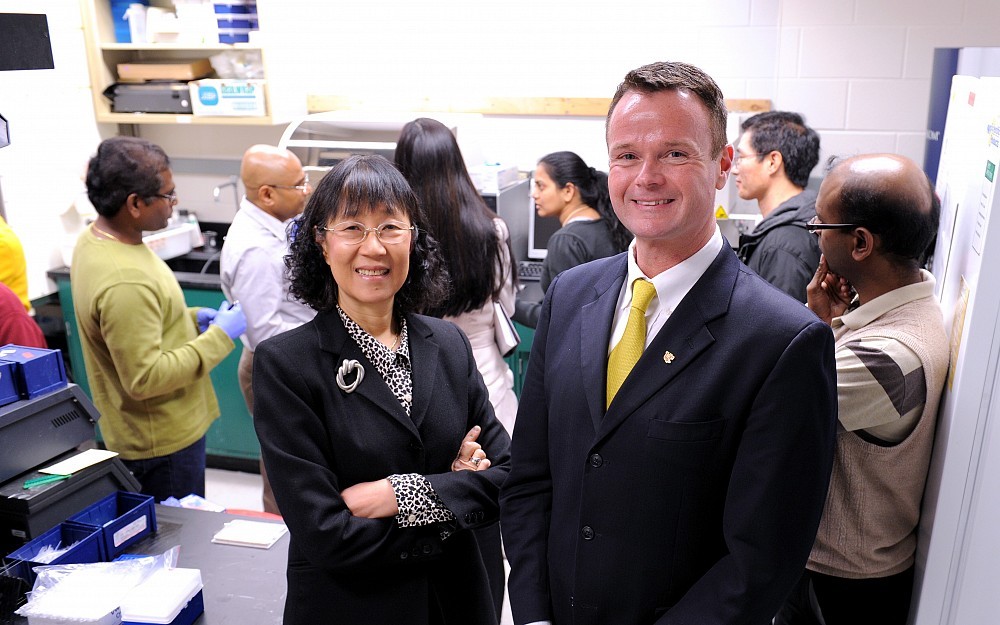
UC Master of Public Health Program Earns Accreditation
CINCINNATIThe University of Cincinnati Master of Public Health (MPH) program housed in the department of environmental health has earned a five-year accreditationthe maximum grantedfrom the Council on Education for Public Health (CEPH).
The CEPH is an independent agency recognized by the U.S. Department of Education to accredit graduate schools of public health and public health programs. It also assists schools and programs in evaluating the quality of their instructional, research and service efforts to grant accreditation.
"Were thrilled about this accreditation, which is the culmination of many peoples hard work and efforts, says William Mase, DrPH, director of the MPH program and research assistant professor in the department of environmental health. "This is validation for our leadership, academic and community partners, students and alumni who have put so much work into making the program robust and an asset to the region.
Aside from being part of an accredited institution of higher education, a program or school must embrace the vision, goals and values common to public health and function as a collaboration of disciplines addressing the health of populations and communities through instruction, research and service.
In addition, the program must provide a special learning environment that supports interdisciplinary communication, promote a broad intellectual framework for problem solving and foster the development of professional public health values which must be present in all of the programs activities.
"Further steps being taken to enhance the program include increasing research revenue as well as our workforce development efforts within the community, which involves collaborating with our public health partners and educating the community via lectures and workshops, and exploring certificate programs or distance learning opportunities for a blended educational experience, Mase says.
Also, Mase says program leadership will focus on growing and augmenting the new concentrationsenvironmental public health, biostatistics and epidemiologyand recruiting new students to these educational tracks.
"Thanks to support from the College of Medicine Dean Thomas Boat, MD, Shuk-mei Ho, PhD, chair of the department of environmental health, Graduate School Dean Bob Zierolf, Interim Provost Larry Johnson, faculty, alumni, students and our community partners, this recognition was possible, he says. "This accreditation is proof that our program meets national quality standards and provides an opportunity for us to look at our curriculum and distinguish areas of strength and those on which we need to build to make our program one of the best in the nation.
"Our aspiration is to be the regions best Master of Public Health program and a national leader in solving public health issues through research, advocacy, policy and education, says Ho. "With the strong research and faculty base in the department of environmental health, we have great confidence in attaining our goals before the next accreditation.
Related Stories
Ancient Maya blessed their ballcourts
April 26, 2024
Using environmental DNA analysis, researchers identified a collection of plants used in ceremonial rituals in the ancient Maya city of Yaxnohcah. The plants, known for their religious associations and medicinal properties, were discovered beneath a plaza floor upon which a ballcourt was built, suggesting the building might have been blessed or consecrated during construction.
OTR mural centerpiece of 'big' celebration of UC alumni
April 26, 2024
New downtown artwork salutes 18 alumni award recipients who personify UC’s alumni success.
2024 Daniel Drake Medals to be awarded April 27
April 24, 2024
The UC College of Medicine will award three people with 2024 Daniel Drake Medals April 27.
